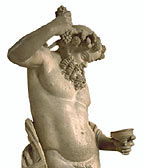
To increase sales of goods and services marketers utilize
every imaginable weakness in consumers' defence mechanisms. A California study
demonstrated how subjective beliefs come into play with respect to the quality
of an experience.
The study tested the neural activity of the study participants after showing
them expensive and inexpensive wines. It was a blind test and the participants
never knew the quality of the wine. They were just told the price. In fact, the
researchers presented the same wine twice, once with the true price tag and
again with a fake one. They passed off an expensive bottle as a cheap one, and a
cheap wine as a moderately price one.
The results showed increased brain activity in an area of the brain believed to
encode pleasure related to taste, odors and music – when participants tasted
“pricey” wine. They found that inflating the price of a bottle of wine enhanced
a person's experience of drinking it.
So if you believe, or are lead to believe, that the experience will be better,
the rewards centre of the brain encodes it as feeling better or more
pleasurable.
These techniques used by marketers were known to ancient Greeks as sophisms. A
sophism is a clever but false argument that appears rigorous and logical but in
reality is not valid.
A person not versed in philosophy can be fooled more easily by sophisms than one
with a sound philosophical base. Philosophy trains the being to be alert,
reasoned and well-grounded.
The capacity of discernment is fundamental in a democracy because the citizens
are at the centre of the decision-making process. If the citizens of a
democratic society accept sophisms, by ignorance or carelessness, they risk
surrendering their government to a tyrant of ever increasing stature. It is,
therefore, good to apply philosophy in small matters in order to be ready to
defend the impending greater causes with intelligence and vigour.